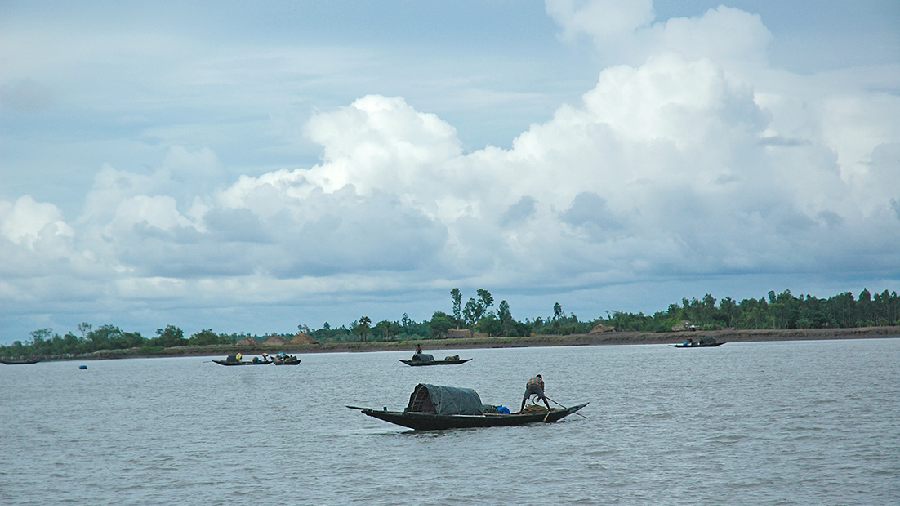A UN report on global climate change released in Interlaken, Switzerland, on Monday has warned that current plans to tackle climate change are insufficient and flagged threats faced by regions like the Sunderbans.
The Synthesis Report by the Intergovernmental Panel on Climate Change (IPCC), a UN body, trains its focus on loss and damage to human beings and environment.
Experts said Sunderbans fits the “loss-and-damage” description because of a sea-level rise double the global benchmark, exposure to frequent high-intensity cyclones and low socio-economic resilience of its residents.
Loss and damage to the environment came into prominence at COP27, the UN climate summit held at Sharm el-Sheikh in Egypt in November 2022. Close to 200 countries who took part in the climate talks agreed after a series of meetings to set up a loss-and-damage finance facility.
“The report, approved during a week-long session in Interlaken, brings into sharp focus the losses and damage we are already experiencing and will continue into the future, hitting the most vulnerable people and ecosystems especially hard,” says an IPCC statement.
Aditi Mukherji, one of the authors of the report, said: “Climate justice is crucial because those who have contributed least to climate change are being disproportionately affected.”
Almost half the world’s population lives in regions that are highly vulnerable to climate change, she said. “In the past decade, deaths from floods, droughts and storms were 15 times higher in highly vulnerable regions.”
Harjeet Singh, head of global political strategy, Climate Action Network International, told The Telegraph: “The report warns that sea-level rise is unavoidable and this is a deep cause of concern for coastal communities in India, particularly the Sunderbans. It calls for appropriate policies and financial resources to help tackle devastating climate impacts.”
Joyashree Roy, a professor and another author of the report, said: “The loss and damage impact is going to increase sharply with every additional warming... coasts and areas like the Sunderbans, already under the climate change hammer, are beyond the coping capacity with an approximate temperature rise of 1.1 degrees over the preindustrial level.”
She warned that the impact would increase exponentially if the temperature rose 1.5 degrees over the pre-industrial level. “If it happens, the situation may go beyond adaptation limits for many. Governments should set targets for higher cuts in emissions.”
“Mainstreaming effective and equitable climate action will not only reduce losses and damage for nature and people, it will also provide wider benefits,” said IPCC Chair Hoesung Lee.
The report says a sharp cut in emission in all sectors is required urgently. Unless the global emissions are reduced by half by 2030, it will be difficult to limit the temperature rise within 1.5 degrees, it says.
“The report is a final warning from scientists to governments that they have less than 10 years to act on climate change,” said Sanjay Vashist, the director of Climate Action Network South Asia.

